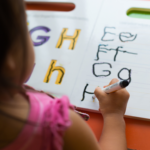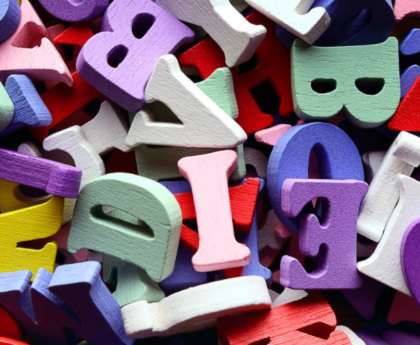Word hunts combine the thrill of a scavenger hunt with powerful literacy practice, creating an engaging way for readers to build essential skills. These activities tap into children’s natural love for games while secretly reinforcing key reading concepts. For parents watching their child struggle with early reading, word hunts offer a refreshing approach that feels more like play than practice—exactly what many reluctant readers need.
Word Hunts: Phonics Building Blocks
Word hunt activities are more than just fun—they’re scientifically sound teaching tools that support multiple aspects of reading development. These games help children develop their ability to recognize letter patterns, improve their decoding skills, and build fluency through repeated exposure to words.
For young children, word hunts provide critical practice with phonics principles. When children search for words with specific spelling patterns or sounds, they’re actively engaging with the alphabetic principle—the understanding that letters and letter combinations represent sounds in spoken language. This fundamental concept forms the foundation of reading success according to the Science of Reading approach.
Learning activities that incorporate movement, sensory elements, and play lead to better retention and application of new skills. Word hunts tick all these boxes by getting children physically moving, visually searching, and mentally processing as they hunt.
7 Powerful Word Hunt Activities for Your Struggling Reader
Creating effective word hunt activities doesn’t require expensive materials or complex preparation. Here are seven parent-tested activities you can implement today:
- Letter Pattern Search: Hide index cards with common spelling patterns (like ‘-at’, ‘-ing’, or ‘sh-‘) around your home. Have your child find them and then think of words that contain those patterns. This reinforces pattern recognition—a critical skill for developing readers.
- Magnetic Letter Hunt: Place magnetic letters in a sensory bin filled with rice or beans. Ask your child to dig for specific letters to form target words. This multisensory approach helps reinforce letter-sound connections.
- Word Family Houses: Draw simple house shapes on paper, each labeled with a different word family ending (-ap, -ig, -ot). Hide picture cards around the room that match these families. Children must find the pictures and place them in the correct “house.” This strengthens phonemic awareness and sound-blending abilities.
- Environmental Print Safari: Take a walk through your neighborhood or a store with a checklist of words to find on signs, packages, and other environmental print. This shows children that reading has real-world applications.
- Flashlight Word Hunt: In a darkened room, tape words on walls and furniture. Give your child a flashlight to “spotlight” words they can read. The novelty factor makes this especially engaging for reluctant readers.
- Decodable Sentence Puzzle: Cut up simple, decodable sentences into individual words. Hide the words around a room for your child to find and then arrange them into proper sentences. This builds both decoding skills and sentence comprehension.
- Sound Sorting Treasure Chest: Fill a box with small objects or pictures. Have your child “hunt” through the treasure chest to find items that start with a target sound. This builds phonemic awareness—the ability to identify and manipulate individual sounds in words.
Customize Word Hunts for Your Child’s Reading Level
The beauty of word hunts lies in their adaptability. You can easily customize these activities to match your child’s specific needs and current reading stage.
For very early readers struggling with letter recognition, focus hunts on individual letters rather than complete words. As they progress, move to simple consonant-vowel-consonant words like “cat” or “big.” Advanced beginners can hunt for words with blends and digraphs like “ship” or “blend.”
Pay attention to your child’s frustration threshold. The goal is to provide just enough challenge to promote growth without causing discouragement. A good rule of thumb is to include 75% of words they can easily decode and 25% that stretch their abilities slightly.
Consider incorporating your child’s interests into word hunts. If they love dinosaurs, hide dinosaur-related words. For space enthusiasts, create a cosmic word hunt. This personal connection increases motivation and shows children that reading connects to things they care about.
The Parent’s Role: Support Without Overwhelming
Your approach as a parent significantly influences your child’s experience with word hunts. Here are key strategies to maximize effectiveness:
Keep sessions short and upbeat—10-15 minutes of high-quality engagement beats 30 minutes of frustrated practice. Watch for signs of fatigue or frustration and be ready to adapt or take a break.
Provide the right level of support. Initially, you might need to help your child sound out words they find. Gradually reduce your assistance as they gain confidence. Celebrate effort as much as accuracy—praise your child for trying tough words even if they make mistakes.
Maintain a lightness around these activities. If your child senses your anxiety about their reading progress, they’ll absorb that tension. Frame word hunts as special games you enjoy together, not just as an educational moment.
Build Consistency: Create a Word Hunt Routine
Consistency dramatically impacts learning outcomes for early readers. Rather than overwhelming your child with lengthy daily sessions, aim for regular, brief practice opportunities throughout your week.
Try integrating word hunts into existing routines. While dinner cooks, do a quick five-minute word hunt. Create a weekly “Word Hunt Wednesday” tradition. Keep materials organized in a special box or basket for easy access.
Document your child’s progress by keeping a list of mastered words. Reviewing this list periodically shows both of you how far they’ve come and builds confidence.
Ready to Make Reading an Adventure? Start Your Journey Today!
Word hunt activities offer a playful pathway to reading success for early readers. By combining movement, discovery, and targeted practice, these games address core reading skills while maintaining your child’s enthusiasm and confidence.
Remember, reading development isn’t a race—it’s a journey unique to each child. Word hunts provide stepping stones along that path, making each step more enjoyable and less daunting.
Want more science-backed, kid-approved reading activities that make learning fun? Download the Reading.com app today for a free 7-day trial and discover a world of engaging, effective reading resources designed specifically for children at every stage of their reading journey. Turn reading challenges into reading adventures starting today!





